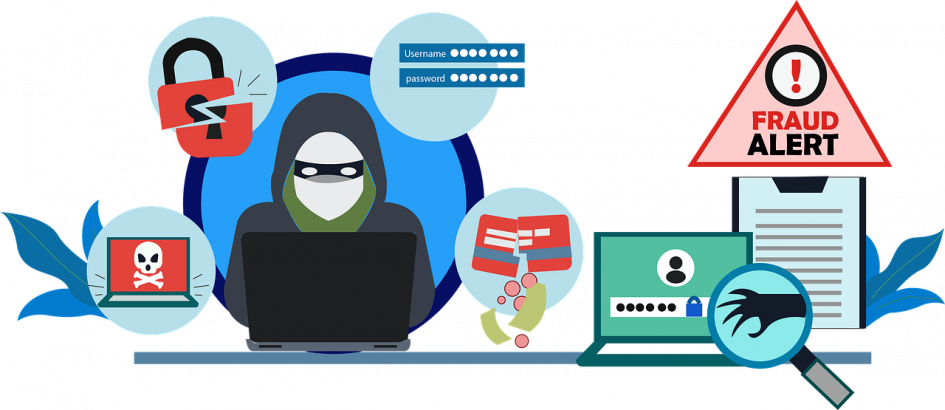In today’s world, personal loans have become a common financial tool for individuals seeking quick access to funds for various needs. While there are legitimate lenders like SkyCap Financial in the market, there are also unscrupulous actors looking to take advantage of unsuspecting borrowers. In this comprehensive guide, we will delve into the intricate details of personal loan scams, offering valuable insights and tips on how to protect yourself from falling victim to these fraudulent schemes.
Understanding the Landscape of Personal Loan Scams
Personal loan scams can take various forms, but their primary goal is to deceive individuals into giving away their personal and financial information or making upfront payments for loans that never materialize. To safeguard your financial well-being, it’s crucial to be aware of the tactics used by scammers.
Research the Lender
Before committing to any personal loan, it’s crucial to thoroughly research the lender. Legitimate lenders should have a track record of providing reliable financial services. Begin your research by verifying their credentials and reputation.

Start by checking whether the lender is registered with relevant licensing authorities and whether they have a physical presence, such as a brick-and-mortar office. Legitimate lenders like SkyCap Financial will be transparent about their credentials and provide a physical address.
Beware of Unsolicited Offers
One common tactic employed by personal loan scammers is sending unsolicited loan offers through email or phone calls. These offers often sound too good to be true, promising low interest rates and guaranteed approval. Be cautious when you receive such offers, especially if you haven’t initiated contact with the lender.
Instead, take the initiative to seek out reputable lenders. Visit their official websites, use their official contact information, and engage in direct communication. Avoid responding to unsolicited loan offers from unknown sources, as they are frequently a red flag for potential scams.
Check for a Physical Address
A legitimate lending institution will have a physical address that you can verify. Scammers often provide P.O. Box addresses or have no physical presence at all. To ensure the authenticity of a lender, verify their physical address and check whether they are registered with industry associations or regulatory bodies.
Understand the Loan Terms
A fundamental step in avoiding personal loan scams is understanding the loan terms. Legitimate lenders provide clear and transparent information regarding interest rates, repayment schedules, and any associated fees. Review the terms and conditions of the loan carefully, and if something seems too good to be true, exercise caution.
Scammers often entice potential victims with overly favorable loan terms to lure them into their fraudulent schemes. If a lender’s offer seems too good to be true, it’s essential to thoroughly investigate and verify their legitimacy.
Avoid Upfront Fees
One of the most significant warning signs of a personal loan scam is the demand for upfront fees or payments. Legitimate lenders typically deduct fees from the loan amount or charge them over time. If a lender insists on upfront payments, especially before disbursing the loan, it’s a clear indicator of a potential scam.
Scammers often use upfront fees as a way to extract money from victims without providing any legitimate services in return. Avoid any lender or platform that requests payment before receiving your loan funds.
Verify Contact Information

Scammers frequently use generic email addresses and phone numbers for their communication. To verify the authenticity of a lender, double-check the contact information provided and ensure it matches the details on their official website.
Legitimate lenders like SkyCap Financial will have professional email addresses and phone numbers associated with their business. Avoid lenders who primarily use free email services like Gmail, Yahoo, and Hotmail for official communication, as this can be a sign of a potential scam.
Impersonation on Social Media
In recent years, scammers have extended their reach to social media platforms, where they impersonate legitimate lenders or create fake profiles. They may use the name and logo of a reputable lender like SkyCap Financial to deceive potential borrowers.
To protect yourself from such scams, always verify the authenticity of a lender’s social media accounts. Look for official verification badges, consistent branding, and a history of genuine interactions. If you receive loan offers or communication from social media accounts that appear suspicious, contact the lender through their official channels to confirm their identity.
Lenders Never Require Upfront Payments

One crucial principle to remember when seeking a personal loan is that legitimate lenders never require upfront payments. Scammers often use this tactic to extract money from individuals by promising a loan in exchange for an initial fee.
Legitimate lenders, such as SkyCap Financial, deduct any applicable fees from the loan amount or include them in the repayment schedule. If a lender insists on an upfront payment before disbursing the loan, it’s a clear indication of a fraudulent operation.
Conclusion
When seeking a personal loan, your financial well-being is of utmost importance. Protect yourself from personal loan scams by conducting thorough research, verifying the lender’s credentials, and understanding the loan terms. By following these steps and remaining vigilant, you can ensure that your financial transactions are safe and secure, allowing you to access the funds you need with confidence.
Remember that a legitimate lender, like SkyCap Financial, is committed to your financial well-being and will always prioritize transparency and trustworthiness in their services. By staying informed and cautious, you can navigate the world of personal loans with confidence and safeguard your financial future. Be especially mindful of impersonation on social media and never fall for the scammer’s demand for upfront payments, as these are clear red flags that should not be ignored.







